Are you looking for a contractor?
Submit our quick form and get quotes now!
Table of Contents
5 min read
What Are the Different Ways to Insulate a Garage Ceiling?
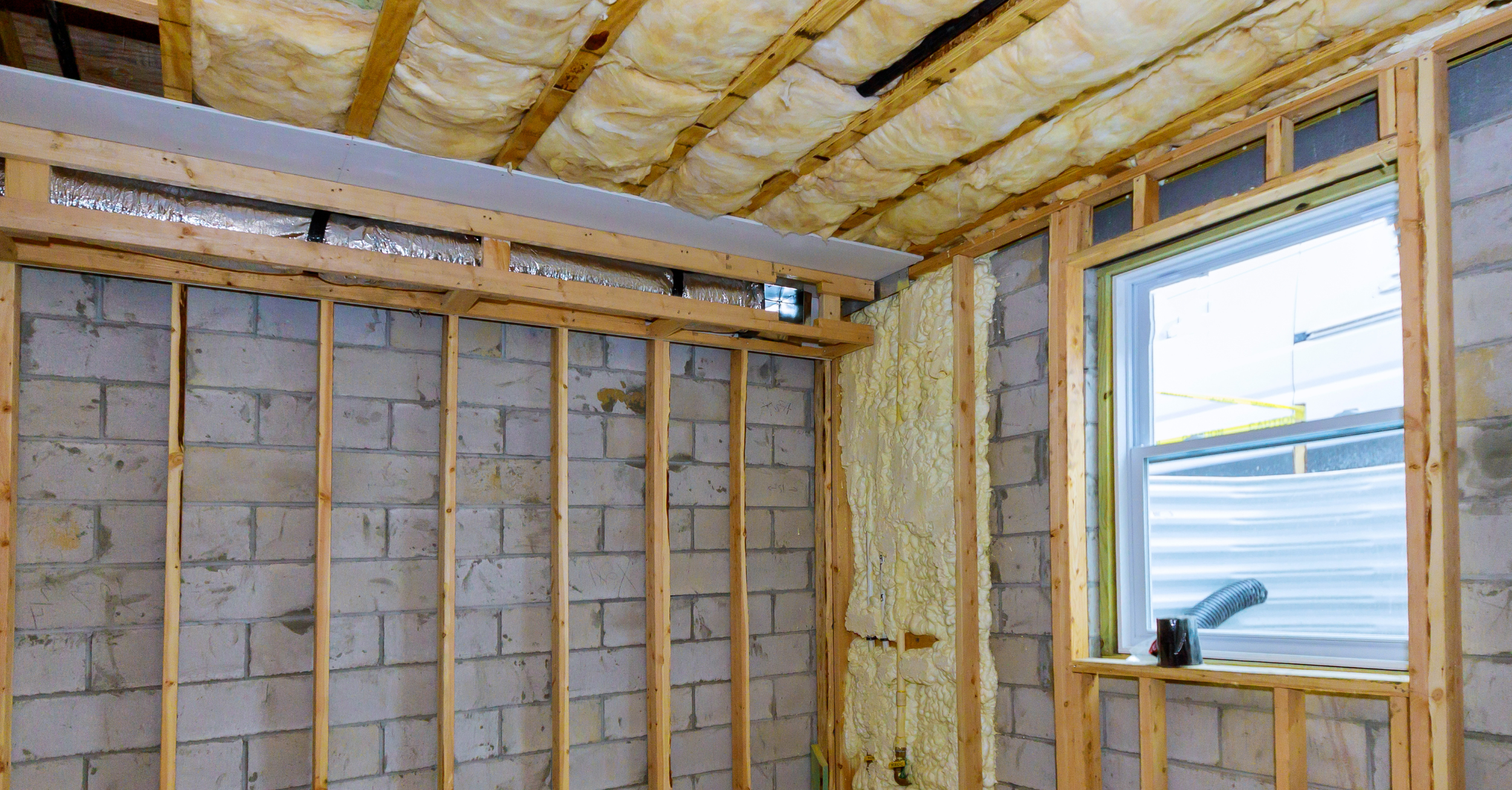

5 min read
What Are the Different Ways to Insulate a Garage Ceiling?
InsulationWhat Are the Different Ways to Insulate a Garage Ceiling?
A garage ceiling can be insulated using several types of insulation materials. If you’re having a hard time wrapping your head around which ones, rest assured, you’ve come to the right place. In this article, we compared 14 different materials based on their thermal characteristics.
So not only will you find the most insulating materials, but you’ll also find those that are most compatible with the insulation method that you may want to carry out at home.
How to Choose the Best Insulation Material for a Garage Ceiling
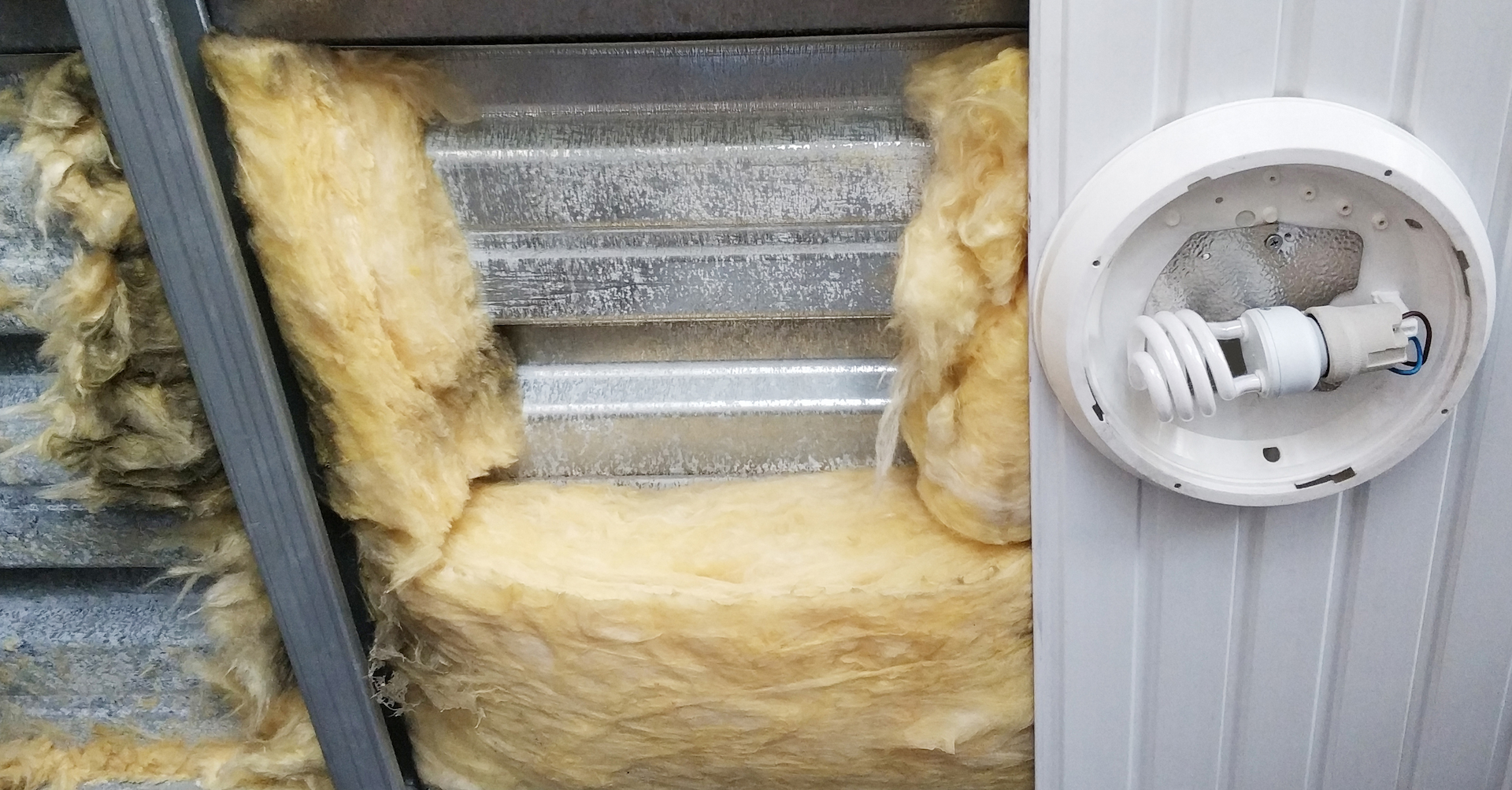
Source: Canva
To figure out which insulation materials are best for a garage ceiling, we looked at 14 different materials based on the following 5 thermal characteristics:
Thermal conductivity (K-value)
Thermal resistance (R-value)
Diffusivity
Effusivity
Thermal lag (in hours)
Before we get ahead of ourselves, here’s a list of the best garage insulation materials:
Rank | Material |
1 | Polyurethane (latest technology) |
2 | Extruded polystyrene (common) |
3 | Expanded polystyrene (common) |
4 | Cork (natural) |
5 | Rockwool (loose-fill) |
6 | Polyurethane (common) |
7 | Expanded polystyrene (high-density) |
8 | Expanded cork |
9 | Rockwool (medium-density) |
10 | Expanded cork (loose-fill) |
11 | Extruded polystyrene (XPS HFC) |
12 | Extruded polystyrene (XPS) |
13 | Expanded polystyrene (medium-density) |
14 | Rockwool (low-density) |
Now, let’s take a closer look at the different insulation material values:
R-Value (for an 8-inch thickness)
An R-value stands for a material’s thermal resistance coefficient and is based on two factors:
Thickness
Thermal conductivity
A material’s thermal conductivity is quantified by a numerical value, and the lower that value is, the better the material’s insulation properties are. However, thermal resistance, measured by the R-value is quite the opposite: the higher the R-value, the better the insulation performance.
Rank | Insulation material | Conductivity | R-value |
1 | Polyurethane (latest technology) | 0.025 | 8.05 |
2 | Extruded polystyrene (common) | 0.031 | 6.5 |
3 | Expanded polystyrene (common) | 0.035 | 5.7 |
4 | Polyurethane (common) | 0.035 | 5.7 |
5 | Expanded polystyrene (high-density) | 0.040 | 5 |
6 | Expanded cork (loose-fill) | 0.040 | 5 |
7 | Cork (natural) | 0.040 | 5 |
8 | Extruded polystyrene (XPS HFC) | 0.040 | 5 |
9 | Extruded polystyrene (XPS) | 0.042 | 4.8 |
10 | Rockwool (medium-density) | 0.044 | 4.55 |
11 | Rockwool (low-density) | 0.050 | 4 |
12 | Expanded polystyrene (medium-density) | 0.052 | 3.8 |
13 | Rockwool (loose-fill) | 0.060 | 3.3 |
14 | Expanded cork | 0.090 | 2.2 |
Thermal Diffusivity and Effusivity
Thermal diffusivity and effusivity are significant thermal properties to consider when choosing an insulation material meant for a garage ceiling. By selecting a material with decent thermal properties, you’re in turn ensuring that your garage is efficiently insulation and safeguarded.
Thermal diffusivity
Thermal diffusivity is a material’s capacity to transmit heat through conduction. An excellent thermal diffusivity is typically indicated by a value below 0.2, whereas a value exceeding 1 is considered exceptionally poor.
Rank | Insulation Material | Diffusivity |
1 | Expanded cork | 0.16 |
2 | Cork (natural) | 0.17 |
3 | Expanded cork (loose-fill) | 0.27 |
4 | Extruded polystyrene (common) | 0.63 |
5 | Polyurethane (latest technology) | 0.64 |
6 | Rockwool (medium-density) | 0.61 |
7 | Polyurethane (common) | 0.71 |
8 | Extruded polystyrene (XPS) | 0.83 |
9 | Extruded polystyrene (XPS HFC) | 0.86 |
10 | Expanded polystyrene (high-density) | 0.97 |
11 | Expanded polystyrene (common) | 1.20 |
12 | Rockwool (loose-fill) | 1.46 |
13 | Rockwool (low-density) | 2.20 |
14 | Expanded polystyrene (medium-density) | 2.99 |
Thermal effusivity
As for thermal effusivity, it indicates a material’s ability to transmit heat through radiation. The lower the effusivity coefficient, the better the insulation material is.
As such, a value above 1,000 suggests poor insulation capabilities in a material, while a value below 35 indicates excellent insulation properties.
Rank | Insulation material | Effusivity |
1 | Expanded polystyrene (medium-density) | 30.08 |
2 | Expanded polystyrene (high-density) | 30.60 |
3 | Expanded polystyrene (common) | 31.86 |
4 | Polyurethane (latest technology) | 32.49 |
5 | Rockwool (low-density) | 33.66 |
6 | Extruded polystyrene (common) | 38.97 |
7 | Polyurethane (common) | 41.41 |
8 | Extruded polystyrene (XPS HFC) | 43.08 |
9 | Extruded polystyrene (XPS) | 46.17 |
10 | Rockwool (loose-fill) | 49.72 |
11 | Rockwool (medium-density) | 56.32 |
12 | Expanded cork (loose-fill) | 76.94 |
13 | Cork (natural) | 96.18 |
14 | Expanded cork | 227.68 |
Thermal Lag
Thermal lag refers to the time period (delay) during which an insulation material can inhibit heat transfer.
Rank | Insulation material | Thermal lag (hr) |
1 | Expanded cork | 16 |
2 | Cork (natural) | 15 |
3 | Expanded cork (loose-fill) | 12 |
4 | Rockwool (medium-density) | 8 |
5 | Extruded polystyrene (common) | 8 |
6 | Polyurethane (latest technology) | 8 |
7 | Polyurethane (common) | 7 |
8 | Extruded polystyrene (XPS) | 7 |
9 | Extruded polystyrene (XPS HFC) | 7 |
10 | Expanded polystyrene (high-density) | 6 |
11 | Expanded polystyrene (common) | 6 |
12 | Rockwool (loose-fill) | 5 |
13 | Rockwool (low-density) | 4 |
14 | Expanded polystyrene (medium-density) | 3 |
What are the best materials to insulate a garage ceiling?

Source: Canva
Polyurethane made from the latest technology and extruded polystyrene are, without a doubt, the best materials to insulate a garage ceiling. However, if you’re looking to solely use eco-friendly materials in your home, cork is your best bet.
Learn more about the best garage ceiling insulation materials down below.
Polyurethane panel or polystyrene panel?
It all depends on the quality of the polyurethane material. If you come across polyurethane with a thermal conductivity of 0.026 rather than 0.035, it indicates that it’s a cutting-edge polyurethane technology; it’s more efficient than a polystyrene panel.
Otherwise, polystyrene will be a way better insulation material. Moreso because you can choose extruded polystyrene, or even better yet, expanded polystyrene.
Polystyrene and polyurethane panels have the added bonus of being aesthetically pleasing, while also cutting back on drywall use.
Rockwool
Mineral wools are far from the most efficient insulation, but they do have one significant advantage: their flexibility.
It isn’t uncommon to see piping snaking through a garage ceiling. Therefore, rockwool is the perfect material. Since it’s very malleable, it can easily be slipped between pipes.
As a result, you won’t need to install drop ceiling tiles to properly insulate your garage, which turns into significant space gain.
Vapour barrier
A vapour barrier is a must if your garage happens to be below a living space. Typically, the vapour barrier will be a part of the living space's flooring insulation system.
Cork
As we’ve already mentioned in the first part of the article: cork is an excellent insulation material for green homes. It ranks just below polyurethane and polystyrene.
However, cork has two issues:
Requires installing drop ceiling tiles
Isn’t made for winter
Therefore, if your garage ceiling is rather low, cork may not be the best insulation material. Generally speaking, in Quebec, where winters are quite harsh, cork doesn’t typically hold its own.
As a matter of fact, while it does have an exceptional thermal lag in terms of heat, its thermal conductivity and resistance (R-value) are deemed average.
How to DIY a Garage Ceiling Insulation
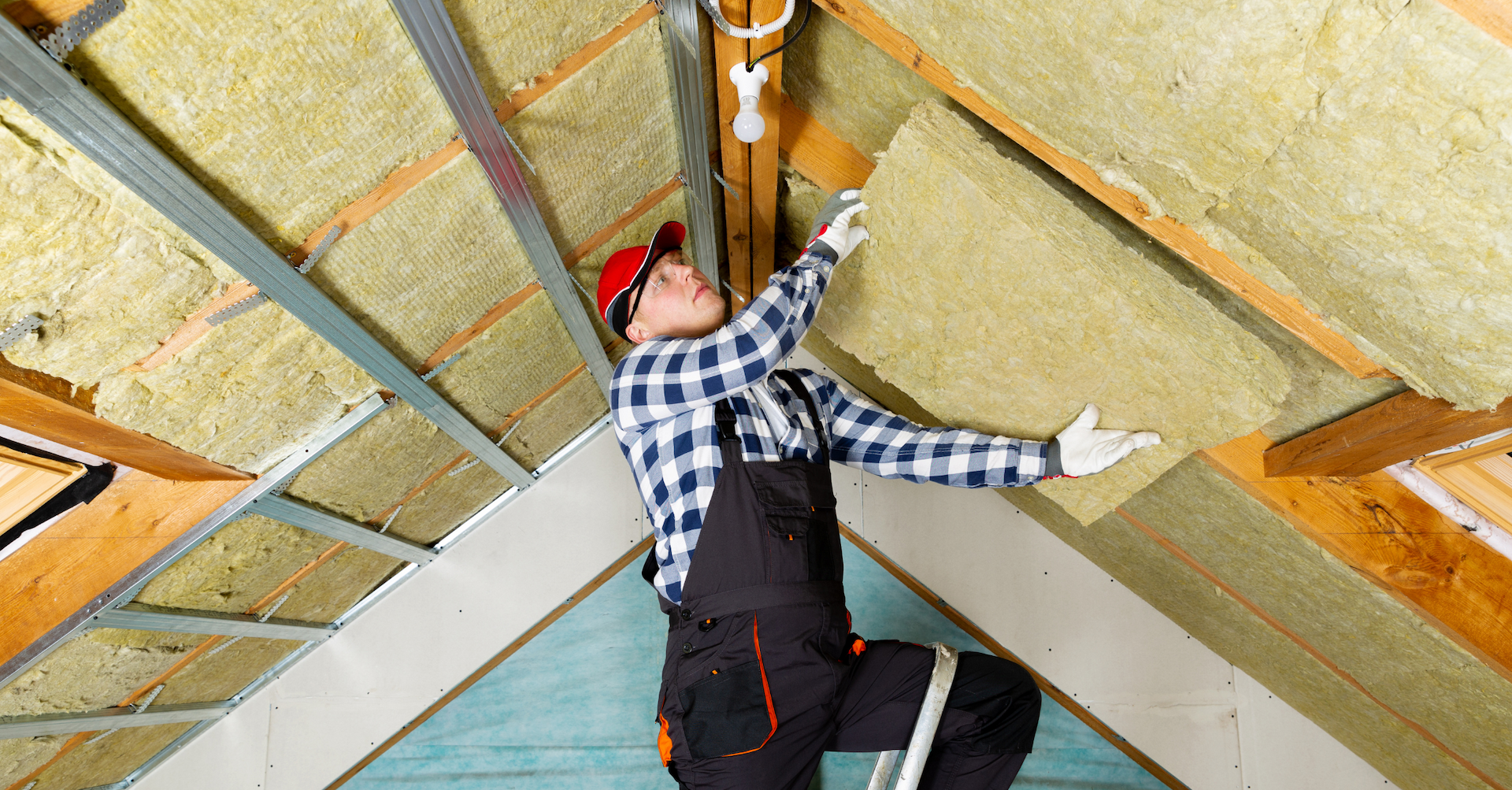
Source: Canva
There are three methods used to install insulation material on a garage ceiling:
Glue/screws
Drop ceiling (drop tiles or self-supporting membrane)
Spray
You can base your decision on:
Your preferred method
The height of your garage
The insulation material you’ve selected
For example, should you decide to opt for a spray-in method, polyurethane is your only option. Whereas, with a drop ceiling, you can use mineral wools, polystyrene, or polyurethane.
However, using the glue/screw method, for which the polystyrene panels are typically preferred, you’ll lose a significant amount of height in your garage.
Concrete Garage Ceiling Insulation Tips
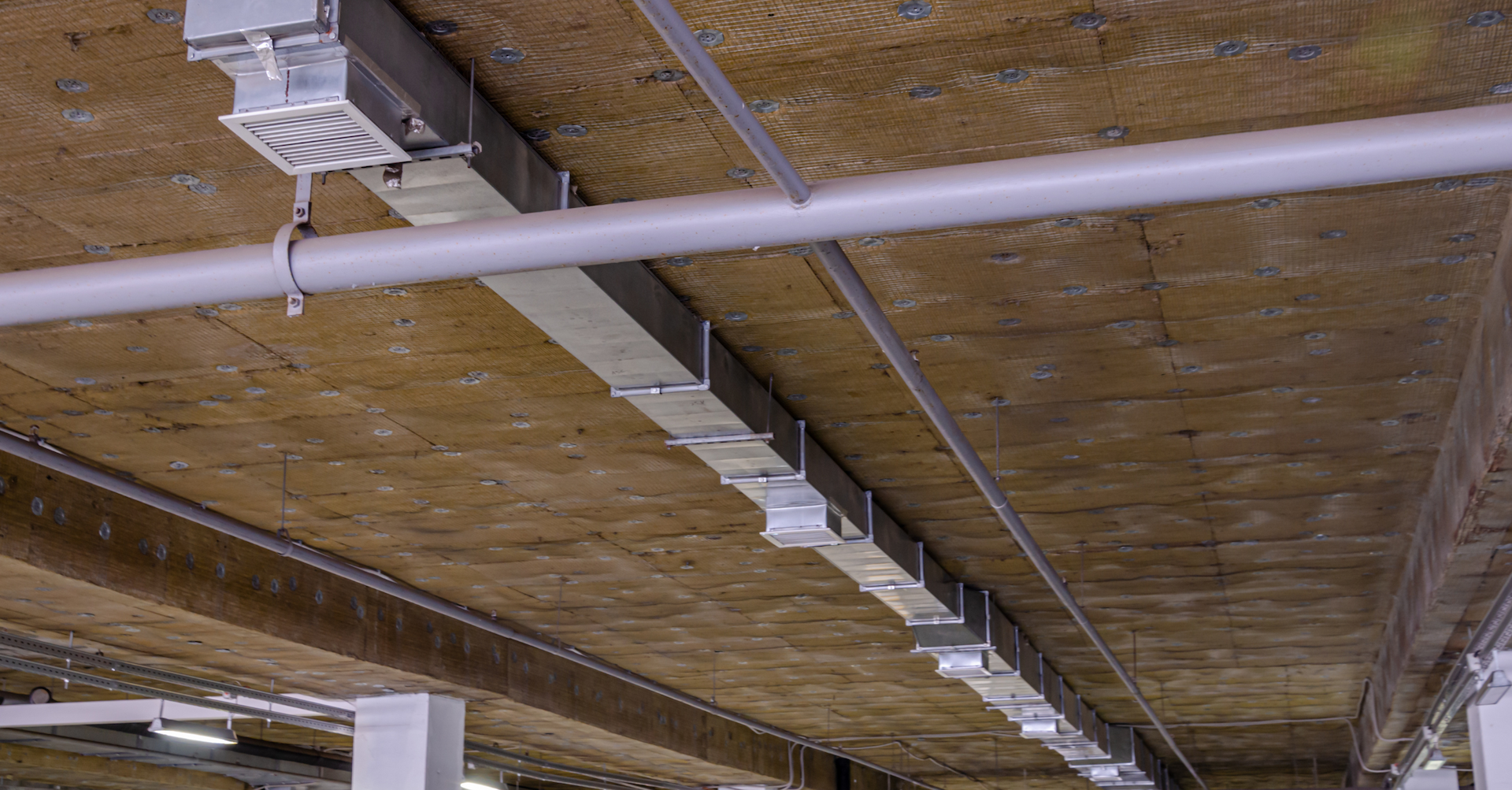
Source: Canva
Favour the following three insulation materials:
Polyurethane insulation panels
Extruded polystyrene insulation panels
Cork
If you’re not comfortable using the glue/screw installation method, note that a concrete garage ceiling can be insulated using spray polyurethane foam.
Get 3 quotes for your garage ceiling insulation project
RenoQuotes.com can help you get quotes for your insulation project. By submitting your project, we’ll put you in contact with top-rated contractors. Fill in the form on the homepage (it only takes a few minutes) and get estimates from trusted professionals.
Dial 1-844 828-1588 to speak with one of our customer service representatives.
Last modified 2023-11-07
Looking for something else?
Related articles
The latest industry news, interviews, technologies, and resources.
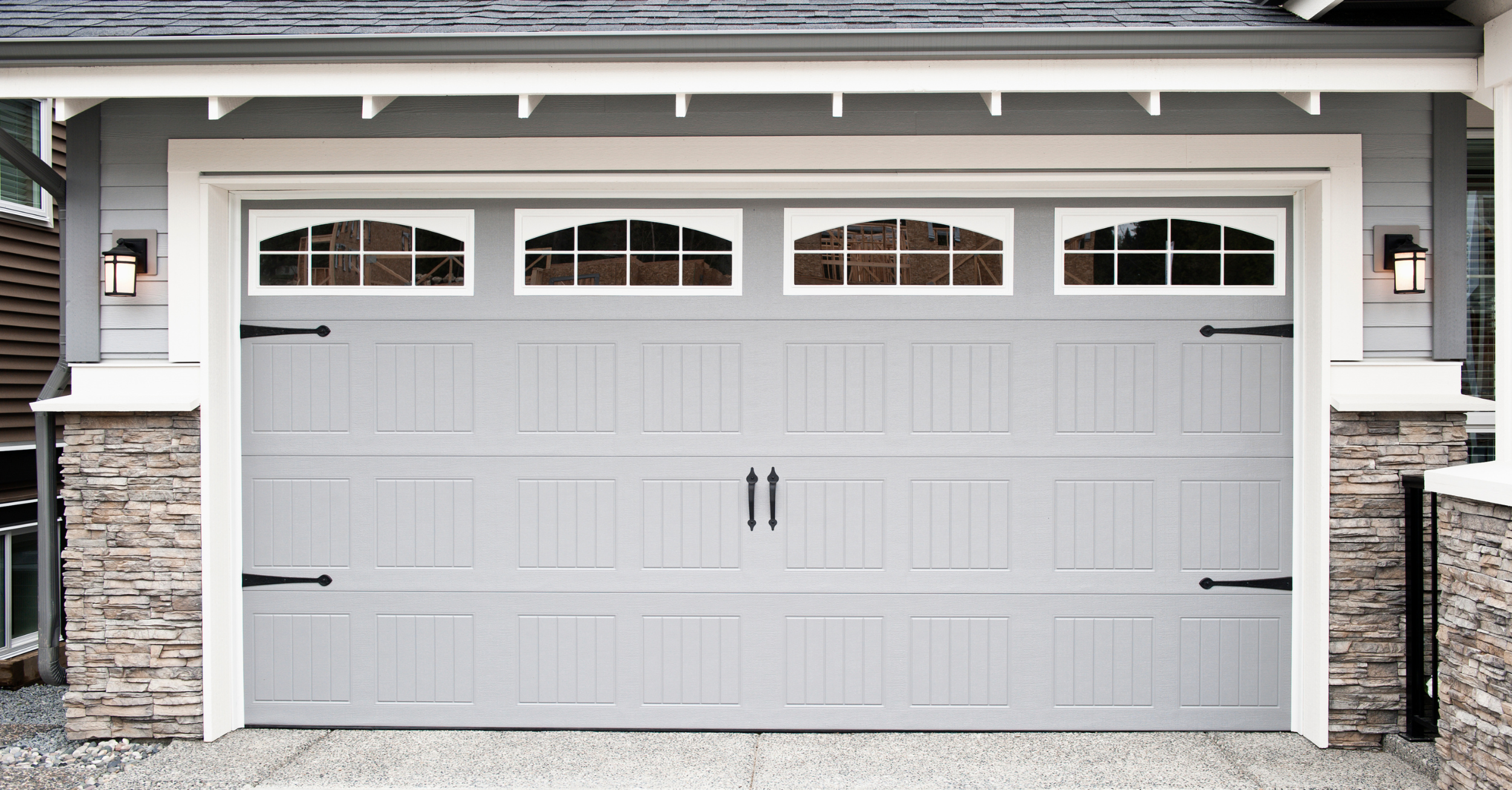
Cynthia Pigeon • 28 Feb 2024
When you think of it, a garage is a room in itself. It allows one to increase the surface area of a house, park a car, and also store furniture safely. You can design your DIY space in it, or even transform it into a year-round living space. No matter its purpose, properly insulating it will ensure that your home's heating and air conditioning systems aren't compromised. Good insulation will also limit any noise pollution.
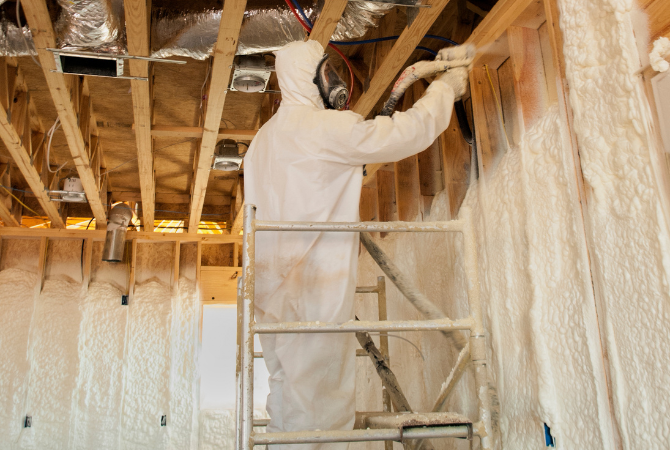
RenoQuotes.com • 17 Apr 2024
Foam insulation is a valuable product, especially since it’s lightweight and easy to install. It’s also an effective way to insulate walls and floors. However little known, polyurethane foam is an amazing product that can very likely be a solution to many a problem. Since it’s particularly adhesive and effectively insulates, every year, this product enables Canadians to shield their residences from the harsh winter cold.

Christime Simard • 19 Apr 2024
When living in the city, the option of having an outdoor courtyard at home is often minimal, even more so if you are a tenant. However, if you are lucky to own a home in the city and it comes with a backyard, the dimensions available to you may be restrictive.

RenoQuotes.com • 07 Nov 2023
Considering the current labour shortage, landing a job in the construction industry may appear simple. More so, there are many ways one can go about finding a first job. However, be mindful of finding a job that reflects your interests and career ambitions. This article will help you explore the different avenues available to make it happen! These helpful tips can help propel your construction job search further and faster.

RenoQuotes.com • 07 Nov 2023
Are you about to renovate your kitchen? It’s no surprise that you’re probably asking yourself questions regarding the standard dimensions of certain elements, like cabinets. Without further ado, here’s the answer to your query!